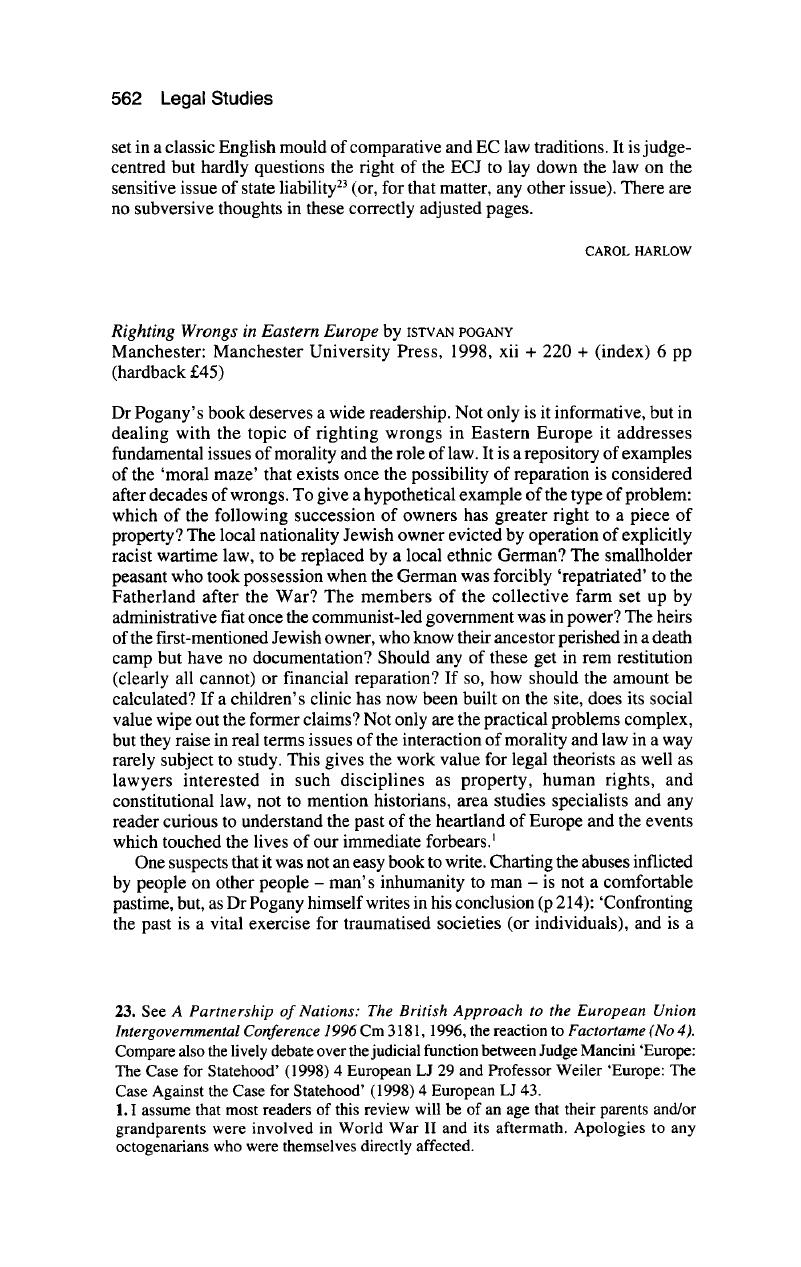No CrossRef data available.
Published online by Cambridge University Press: 02 January 2018

1. I assume that most readers of this review will be of an age that their parents and/or grandparents were involved in World War I1 and its aftermath. Apologies to any octogenarians who were themselves directly affected.
2. There are even touches of humour, which remind the reader of the author's evident humanity. My favourite is the comment in the Acknowledgements on the ‘… numerous cups of strong Hungarian coffee (a tautology if ever there was one)…’.
3. The otherwise well produced text is marred by a word missing from the heading of this chapter.
4. Throughout, but very cogently explained in his Conclusion in n 11 on p 218.
5. There is an increasing literature in English on the growth of Hungarian constitutional law, inter alia, Rona, G Annals of a quiet constitution: developments in Hungarian constitutional review’ (1998) 4 Parker Sch J E EurLaw 151–181 Google Scholar; Halmai, G ‘The reform of constitutional law in Hungary after the transition’ (1998) 18 LS 188–196Google Scholar.
6. For a discussion of minority rights, in particular in Hungary and Slovakia, see Pogany, I ‘International human rights standards and the new constitutions: minority rights in Central and Eastern Europe’ in Mullerson, R, Fitzmaurice, M and Andenas, M (eds) Constitutional Reform and International Law in Central and Eastern Europe (The Hague, London, Boston: Kluwer Law International, 1998) pp 155–186 Google Scholar.
7. Readers may supply their own world-wide examples. as an indication of the persistence of these issues in East Central Europe, I may cite articles from the latest issues of two respected journals: (1998) 7 East European Constitutional Rev 58–64 Google Scholar carries a special report, under the headline ‘Law as an instrument of discrimination’ by J Siklova and M Miklusakova: ‘Denying citizenship to the Czech Roma’. The School of Slavonic Studies interdisciplinary journal, (1998) 10 Slovo no 1 /2 pp 199–218 has an article by I Telecki on the Slovak response to the 10% of its population that are ethnic Hungarian, entitled ‘Loss and lack of recognition: identifying fears in the Slovak-Hungarian relationship’.